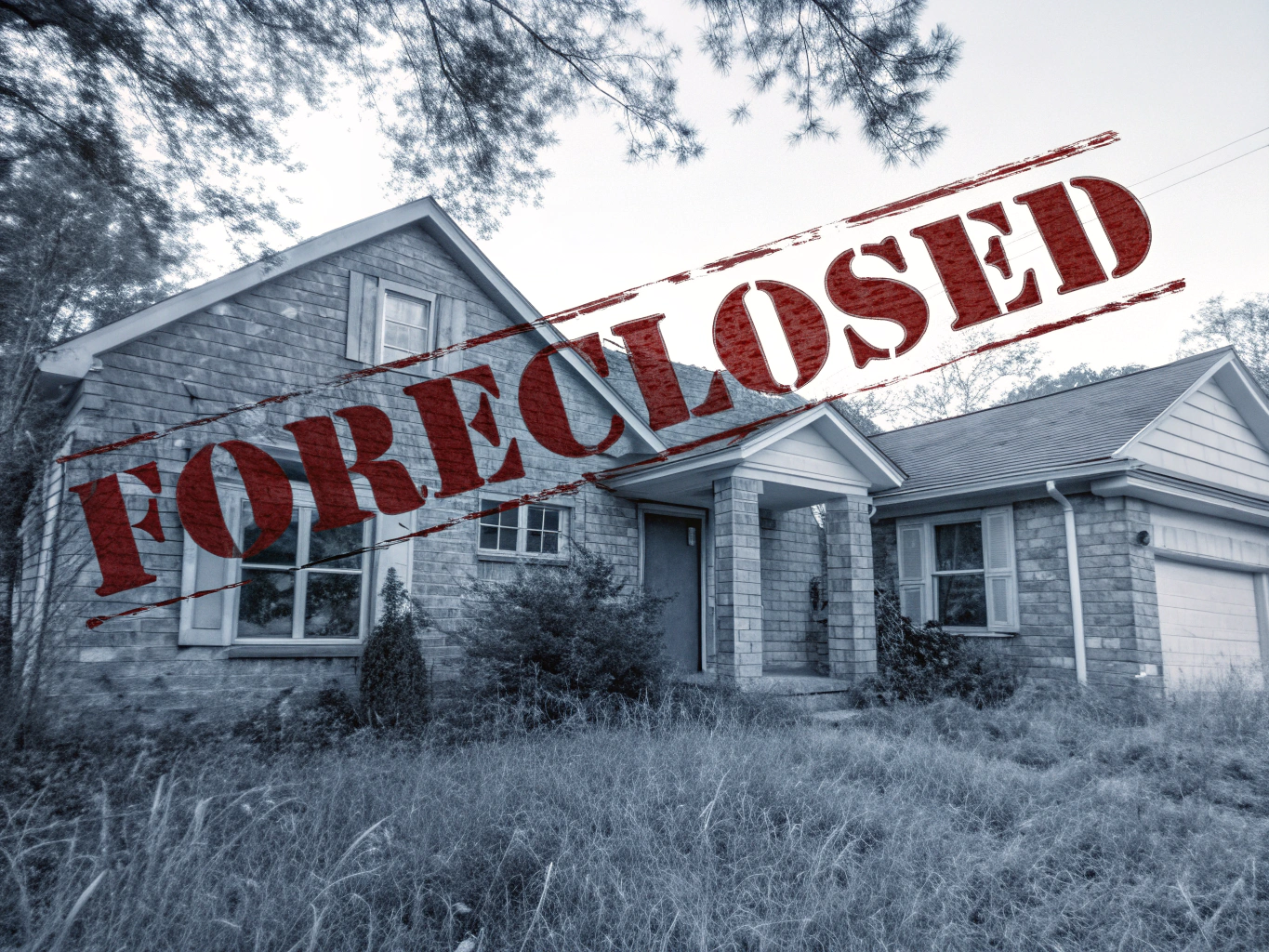*Updated 12-2-25. Original blog posted July 20, 2023
Facing foreclosure in Dallas-Fort Worth? This 2026 guide explains how Texas homeowners can legally sell a house in foreclosure to avoid credit score damage and financial hardship. Covers strategies for quick home sales, working with cash buyers, and preventing auction outcomes using pre-foreclosure options within the DFW housing market.
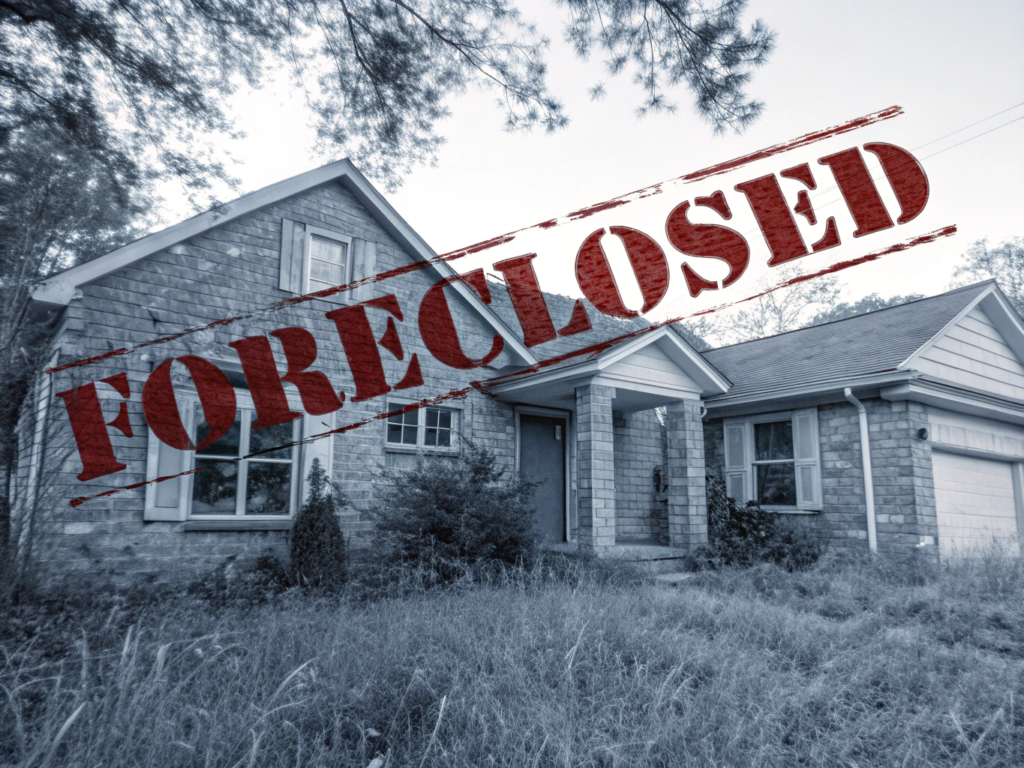
Can You Sell Your Home If It’s In Foreclosure?
Let’s get straight talk about preventing foreclosure in Dallas Fort Worth.
If you’re facing foreclosure, you’ve probably got one question on repeat:
Can you sell a house in foreclosure in Texas, even now?
The answer? Yes.
And for many Texas homeowners, it might be the best option on the table.
Even if foreclosure proceedings have already started, you still have a window to sell and avoid foreclosure in Texas.
In many cases, that single move could help you avoid long-term financial difficulties, protect your credit, and give you back a little breathing room when everything feels like it’s closing in.
Table of Contents
- Can You Sell Your Home If It’s In Foreclosure?
- What Does Foreclosure Mean for Texas Property Owners?
- Can I Sell My Texas House While In Foreclosure?
- Steps to Take When Selling a House in Foreclosure
- Who Should Buy Your Foreclosed Home?
- Legal Considerations When Selling a Foreclosed Property
- How to Reach Potential Buyers for a Foreclosed House
- Understanding Foreclosure Sale Options: Making the Best Decision
Foreclosure doesn’t happen overnight.
It’s usually the result of real-life setbacks such as a job loss, medical bills, credit card debt, or a sudden shift in your monthly payments and expenses.
And when that notice of default letter shows up, it’s more than just paperwork.
It’s a wake-up call that your mortgage company is ready to take legal action, and time is no longer on your side.

But here’s the good news.
If you’re still in the pre-foreclosure period, you’ve got options.
Selling your home before the auction date can help you avoid a deficiency judgment, dodge a massive hit to your credit rating, and sidestep the stress of a foreclosure sale at public auction.
In this Texas homeowner guide, we’ll break down what this legal process really looks like. You’ll learn how to protect your rights, work with the right cash home buyer or real estate investor, and figure out the next step that makes the most sense for your situation.
Bottom line?
If you’re trying to make an informed decision and move forward without wrecking your finances… you’re in the right place.
What Does Foreclosure Mean for Texas Property Owners?
Understanding the Foreclosure Process
Foreclosure isn’t just a scary word.
It’s a legal process that starts when monthly mortgage payments stop and the home loan lender steps in to recover what’s owed.
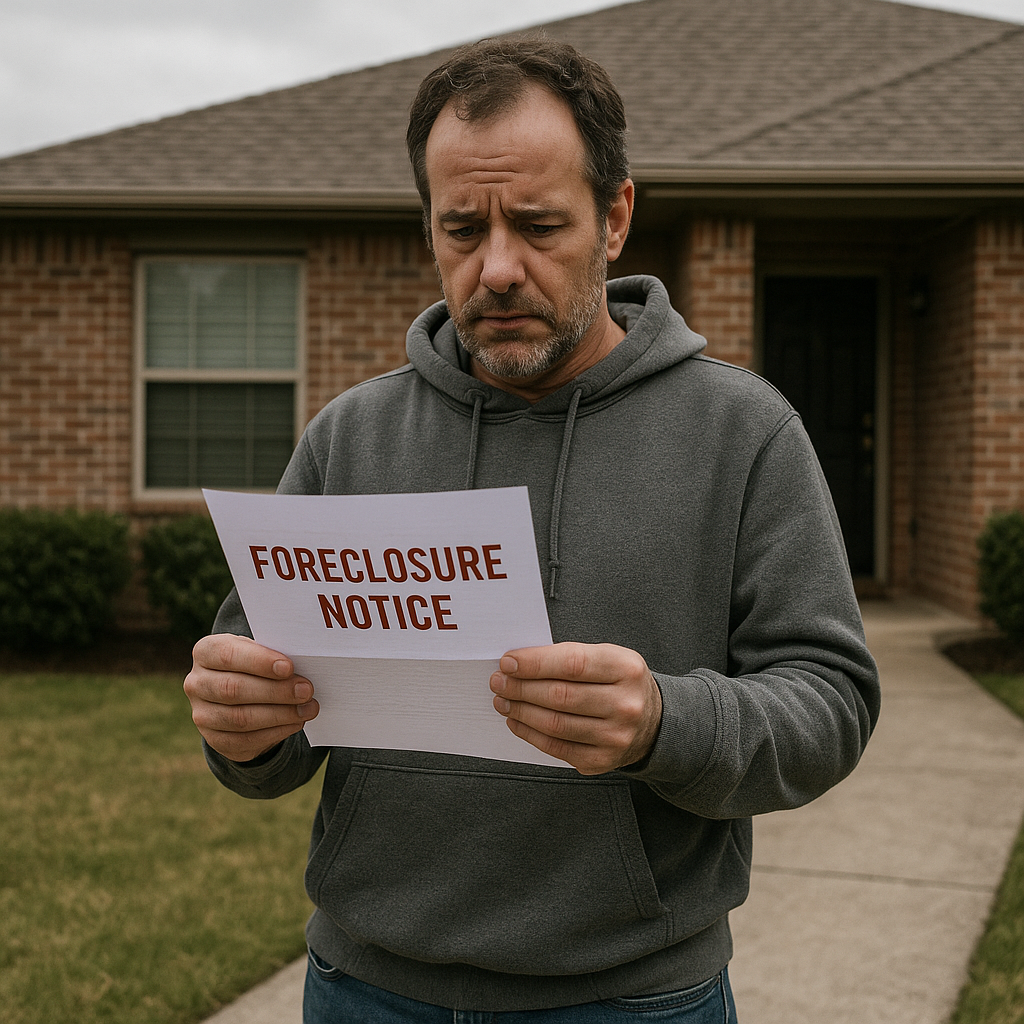
In Texas, that process can move quickly — and if you’re not prepared, it can feel like the ground is shifting beneath your feet.
It usually begins with a foreclosure notice of default letter.
This isn’t just a reminder.
It’s a formal warning from your lender that you’ve missed payments and that foreclosure proceedings could be next if things aren’t resolved.
From this moment forward, the legal clock is ticking.
If the debt remains unpaid, the next step is often a notice of sale, which outlines when and where the property will be auctioned off. On that auction date, your home could be sold to the highest bidder or taken back by the lender if no one meets the minimum sale price.
While you may still have options at this stage, the window to act is closing fast.
In Texas, the type of foreclosure you face matters a lot.
Some foreclosures go through the court system. That’s called a judicial foreclosure, and while it takes longer, it gives you more time to respond, seek legal advice, or explore alternatives.
Others skip the court altogether. These are known as non-judicial foreclosures, and they’re based on the terms outlined in your original mortgage loan agreement.
They’re faster, more streamlined, and very common in Texas.
Knowing which process applies to your property isn’t just helpful. It’s the foundation of how to solve your problem.
It affects how much time you have, what your legal rights are, and what options remain on the table. This is often the point where speaking with a real estate attorney or foreclosure advisor can give you the clarity you need to take the right next step.
How Foreclosure Affects Texas Homeowners
Let’s not sugarcoat it. Foreclosure hits hard.
Once it’s recorded, it leaves a deep mark on your credit score rating that sticks around for years.
That one event can make it harder to qualify for future mortgage debt, rent a home, or even open a credit card account.
If your home sells for less than what you owe, you may still be responsible for the unpaid portion of your mortgage loan.
This is called a deficiency balance, and your lender can try to collect it through a deficiency judgment.
But the damage doesn’t stop there.
Legal fees, unpaid property taxes, and rising outstanding debts often come with the territory.
The truth is, most foreclosure cases don’t start with poor decisions. They begin with life throwing a curveball.
We’re talking about job loss.
Surprise medical bills.
Emergency expenses that knock your personal budget out of balance.
On top of the financial hardship, foreclosure comes with real emotional weight. The fear of losing your home, the stress of getting a foreclosure notice, and the uncertainty about what comes next can take a serious toll…mentally, emotionally, and financially
That’s why time matters.
The earlier you explore solutions like a repayment plan, a loan modification, or selling your home before the foreclosure auction, the more control you’ll have over the outcome.
This isn’t just about saving your house.
It’s about protecting your peace of mind and building a clear path forward.
Can I Sell My Texas House While In Foreclosure?
Your Legal Rights and Real Options
If you’re trying to stop foreclosure and reclaim control, selling your house can be one of the most practical and powerful moves you can make.
Depending on where you live, you might have legal tools available.
For example, some states recognize the right of redemption, which allows you to pay off the full mortgage balance before the sale date and keep your home.
In Texas, the right of redemption is not generally recognized for standard mortgage debt foreclosures.
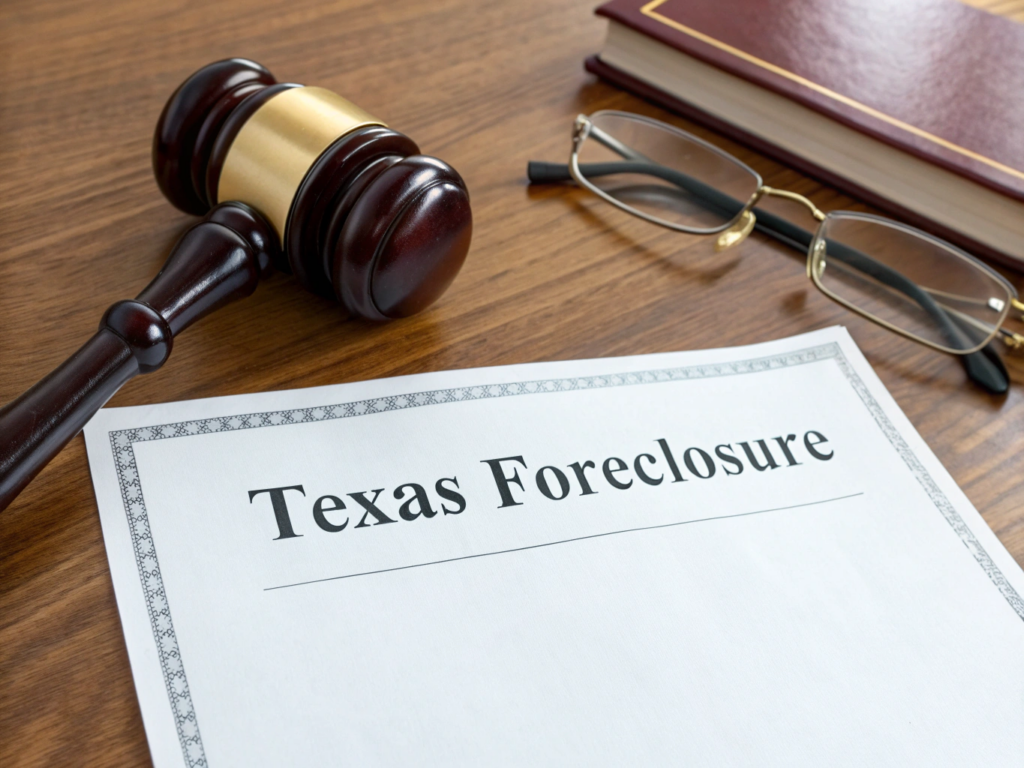
Another possible option is a deed in lieu of foreclosure.
That means you voluntarily transfer ownership of the home back to the mortgage lender instead of going through the full foreclosure process.
This can sometimes reduce legal risk or help avoid a formal foreclosure auction, but it’s not guaranteed to eliminate your deficiency balance.
Always get the terms in writing.
Because these rules differ depending on your mortgage agreement, and how far along the process is, it’s smart to consult a foreclosure attorney or real estate attorney with years of experience in Texas law.
Their guidance can help you make sense of deadlines, paperwork, and whether you’re actually eligible for any of these alternatives.
When’s The Best Time to Sell a Foreclosed Property
Timing can change everything.
When you’re behind on payments, the best time to act is before the auction clock runs out.
The pre-foreclosure period is often the best time to sell.

You still legally own the home, which means you can set an asking price, work directly with potential buyers, and avoid the long-term consequences of a public foreclosure sale.
This is the point where early action in a pre-foreclosure home opens more options.
Selling at the right time and to the right buyer can preserve your credit and help you walk away with fewer strings attached.
When it comes to foreclosure proceedings, that kind of speed can make or break the outcome.
Steps to Take When Selling a House in Foreclosure
Preparing for a Successful Sale
Selling a house during foreclosure takes more than just putting up a listing and hoping for the best.
It takes planning, urgency, and a smart strategy tailored to your financial situation.
The first step? Talk to your mortgage lender.

It might seem counterintuitive, but many lenders would rather work out a solution than take the property back through a foreclosure sale.
In fact, some are open to repayment plans, loan modifications, or even short sales if it helps them avoid the cost and hassle of an auction.
Next, take a hard look at your home’s fair market value.
What are similar single-family homes selling for in your neighborhood?
A realistic asking price can attract more serious potential buyers, especially if you’re working under tight time constraints. Overpricing will slow everything down — and time isn’t on your side when you’re trying to stop foreclosure.
Also, don’t overlook the hidden costs. Property taxes, legal fees, and closing costs can chip away at your final sale price.
A good financial advisor or real estate investor can help you run the numbers and figure out how to position the sale in a way that’s both fast and financially sound.
If you’re in a real estate market like DFW, connecting with top Dallas cash home buyers can be especially helpful. These buyers often purchase homes as-is, move quickly, and won’t ask for repairs or long inspections.
That’s a win if you’re trying to avoid delays and get out clean.
The goal here is simple: position your property for a successful sale so you can protect your finances and move forward with less stress.
Working With Real Estate Experts
Trying to sell your house during foreclosure isn’t something you want to tackle alone.
The right professionals can protect your rights, guide you through the process, and help you get a better outcome both legally and financially.
Start with legal support.
A foreclosure attorney or real estate attorney can explain your options, help you avoid costly mistakes, and protect you from risks like deficiency judgments or missed deadlines that can derail a potential foreclosure sale. Their advice is especially important if you’re facing legal pressure or dealing with a tight timeline.
Then there’s the marketing side.
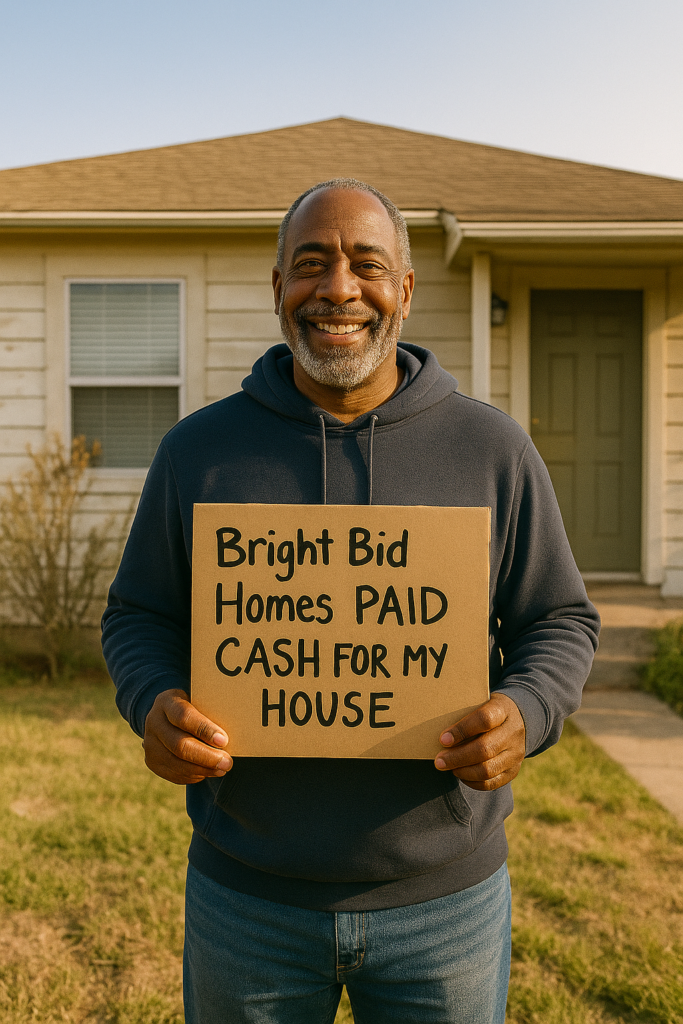
A local real estate agent or a company that buys houses for cash (like us!) can help you connect with qualified buyers quickly.
Or in our case, make you a fast cash offer.
In competitive areas like Dallas county, Fort Worth, or Arlington (Tarrant county), local experience makes a big difference.
Pricing your family home correctly, positioning it well, and marketing it effectively takes real insight into the neighborhood.
At Bright Bid Homes, we work with homeowners who don’t have time to waste.
Behind on payments? Facing an auction date? We get it.
If you need to sell your house fast, we’ll make you a cash offer.
No repairs. No cleaning. No listings. No showings. No banks slowing everything down.
We buy houses in as-is condition and close on your timeline. That means fewer headaches, less risk, and more control when everything feels like it’s slipping away.
Countless Texas homeowners have trusted Bright Bid Homes to help them move forward.
If you’re looking for a fast, no-hassle sale, we’re here when you’re ready.
Who Should Buy Your Foreclosed Home?
Choosing the Right Buyer
Not all buyers are built for foreclosure situations.
Traditional buyers tend to move slowly. They need mortgage approvals, inspections, appraisals — all the things that take time you may not have.
If you’re trying to stop foreclosure or sell fast, time matters. A lot.
That’s why many Texas homeowners turn to cash buyers.
Cash home buyers in places like Dallas and Fort Worth are often ready to close quickly. They’re used to working with foreclosure properties, and they don’t rely on banks to fund the purchase.
No loan delays. No endless back-and-forth.
And they rarely ask for repairs.
If you’re listing the property yourself, make it easy to get found and contacted.
Skip the fluff.
Post clear details like your property address, asking price, and direct contact information.
Highlight any potential. Mention if the home’s in a popular neighborhood or could be a good investment property. That’s what local buyers look for.
Cash Buyers vs. Traditional Sales
Cash buyers can often close in just a few days.
No waiting on financing. No repairs. No open houses.
Sure, the sale price for an off-market home might be lower than a traditional offer, but the speed and convenience often make up for it, especially when you’re racing the foreclosure auction clock.
What matters most is choosing the option that protects your personal finances and fits your timeline.
If you’re not sure, find a foreclosure attorney or financial advisor who can walk you through the trade-offs.
The right move depends on your goals and how much time you have left.
Legal Considerations When Selling a Foreclosed Property
Protecting Your Rights as a Texas Homeowner
Foreclosure laws aren’t one-size-fits-all.
In Texas, things can move quickly, especially if you’re in a non-judicial foreclosure state. Knowing whether your foreclosure is judicial or non-judicial affects your timeline and what legal steps are involved.
A real estate attorney with foreclosure experience can help you understand what to expect.
They can walk you through notices of sale, explain key deadlines, and clarify your lender’s legal authority to move forward.
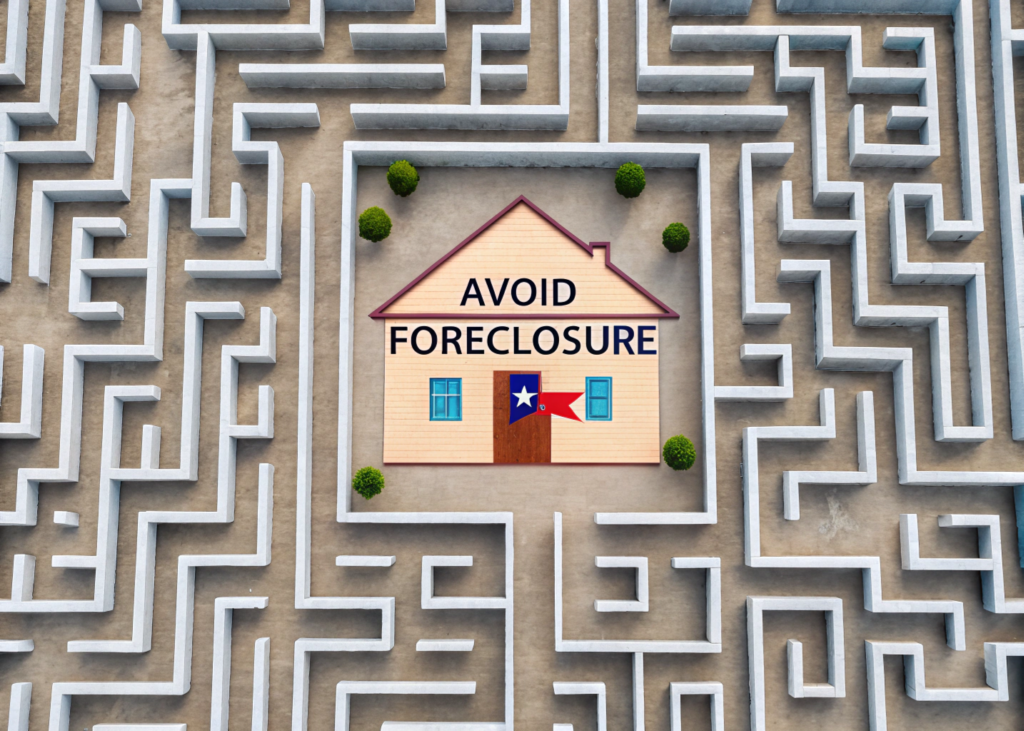
Legal guidance also helps protect you from costly issues like a deficiency judgment or lingering liability after the sale.
This is where expert support makes a difference. The right attorney can give you the clarity and peace of mind to move forward without second-guessing every step.
Addressing Foreclosure Challenges
Falling behind on your monthly payments doesn’t just create stress.
It can trigger a chain reaction.
First come the letters.
Then the legal fees, unpaid property taxes, and growing pressure from your mortgage lender.
What started as one missed payment can quickly turn into a pile of outstanding debts that feel impossible to manage.
This is when having a plan can make all the difference.
Depending on your situation, a loan modification or repayment plan could buy you some time and help preserve your equity.
In other cases, selling the family home may be the cleanest, least risky option.
If you’re unsure, a trusted financial advisor can help you map out your next move. That might mean staying in the home or selling it for the best possible sale price before the situation worsens.
The pressure is real. So are your options.
How to Reach Potential Buyers for a Foreclosed House
Attracting Cash Home Buyers
Reaching the right buyer takes more than posting your property online.
You need to make it easy for the right people to find you and take action quickly.
Start with the basics.
Every listing should include the property address, a clear asking price, and simple contact instructions. If buyers can’t get in touch with you easily, they’ll move on to the next opportunity.
Be as specific as you can about what makes your home valuable. Mention the neighborhood by name. Highlight nearby schools, shopping areas, or anything that adds value.
Even if the home needs repairs like replacing the roof, many buyers are looking for potential, not perfection.
If you’re open to working with a cash buyer or real estate investor, say so clearly.
Let them know you’re looking for an as-is sale and a fast closing. This attracts buyers who are ready to move quickly and don’t need a lengthy inspection or financing approval.
You should also include a timeframe for the sale.
If you’re approaching a foreclosure auction or working under a lender deadline, that information matters.
Letting buyers know there’s a real foreclosure timeline involved can make your listing feel more serious and motivate quicker responses.
You don’t have to figure it all out alone.
At Bright Bid Homes, we’re not just here to guide you through the process.
We’re also the homebuyer when you need a fast solution.
We’ve worked with homeowners across Texas facing tight timelines, and when the difficult situations called for it, we provided fair price offers with quick closings. If listing your home isn’t the right fit, we can offer a simpler way forward.
Understanding Foreclosure Sale Options: Making the Best Decision
When foreclosure is on the table, the right decision can depend on how much time you have, what your home is worth, and how quickly you need to move forward.
Not every option works for every situation.
Knowing what’s available gives you a better shot at protecting your finances.
If your home is still in good shape and you have enough time, a traditional home sale could bring in the highest sale price. Working with a real estate agent to list your home and understand local market trends may lead to multiple offers, especially if demand is strong in your area.
But traditional sales take time. If the foreclosure clock is ticking, waiting weeks or months to close may not be realistic.
That’s where cash buyers come in.
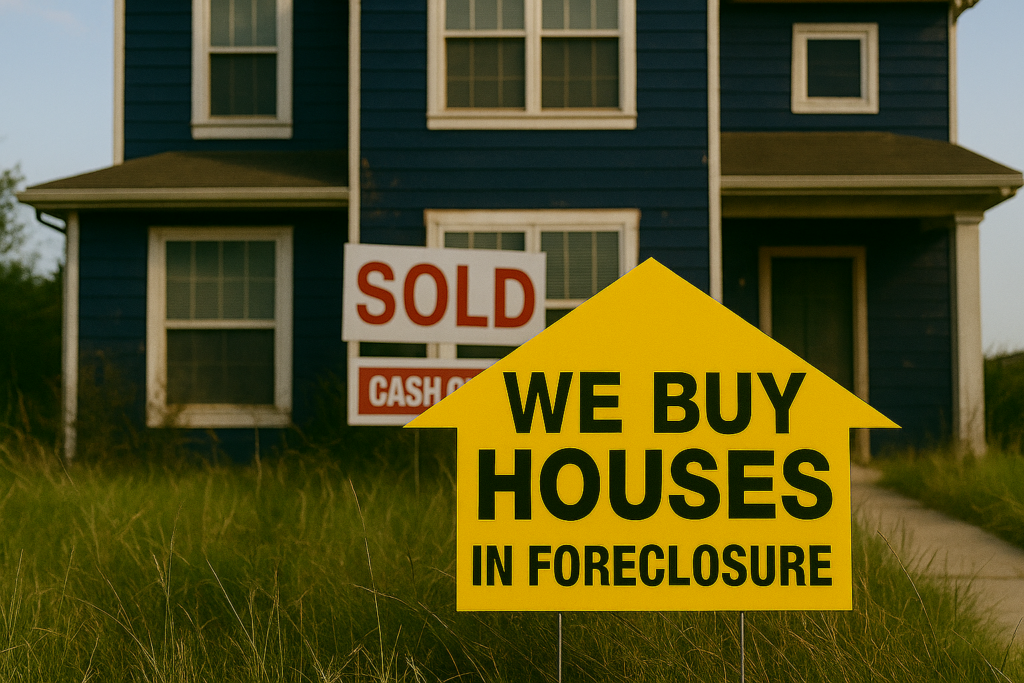
A real estate investor or legit cash home buyer can often purchase your home in as-is condition and close within days.
No inspections. No loan approval delays. No repairs or open houses.
While the sale price may be lower than what you’d get in a full listing, the speed, simplicity, and reduced risk are often worth it… especially when you’re up against a tight timeline or legal deadline.
Another path to explore is a short sale scenario.
In this situation, we have this realty experience and short sale partners to greatly help in a short sale transaction.
For a short sale to execute, your lender agrees to let you sell the home for less than what you owe on the mortgage debt.
It requires approval and can take time, but it may help you avoid foreclosure entirely and limit damage to your credit. Short sales are often a good middle-ground solution for DFW homeowners who are financially stuck but trying to avoid further fallout.
No matter which path you take, the right support makes a big difference.
A foreclosure attorney or financial advisor can help you weigh the pros and cons, explain what to expect, and walk you through the paperwork. Their job is to help you make smart, informed decisions and help to avoid foreclosure mistakes that could cost you more later.
At Bright Bid Homes, we’ve worked with homeowners all across Texas who needed fast, practical solutions.
Whether you choose to sell to us directly or just want to explore your options, we’re here to help you make the decision that fits your timeline, your property, and your goals.
We have years of experience and options to help you avoid foreclosure in Dallas-Fort Worth.

** Disclaimer: This article is intended for informational purposes only and does not constitute legal, financial, or tax advice. Foreclosure laws and real estate procedures vary by state, county, and ZIP code, including specific nuances in places like Plano, Arlington, and throughout Dallas-Fort Worth. If your property is facing a sheriff’s sale or pre-foreclosure, we recommend consulting a qualified attorney or financial advisor who understands Texas state law and can help determine a viable option based on your remaining balance, timeframe, and financial stability. While Bright Bid Homes specializes in helping new owners through distressed property sales, we do not guarantee outcomes or equity retention. Property values, interest rates, and timelines may differ from case to case. If you’re selling in another state, such as New Jersey, always consult a local expert to ensure your real estate transaction complies with all regional laws and avoids negative consequences.
*** About the Authors: Hilary Schultz is a licensed Texas Realtor and Zillow-recognized Top Agent with a strong track record of guiding homeowners through foreclosure-related sales across Dallas-Fort Worth. She and her husband Patrick lead Bright Bid Homes, a family-run real estate business with over 2,900 real estate transactions completed across Texas. Their data-driven, people-first approach helps homeowners make informed decisions… even under financial stress.
In addition to her real estate expertise, Hilary serves on the executive board of her local Texas PTA and remains active in the DFW community. You can verify her Realtor credentials, explore client reviews on Google, or learn more about Bright Bid Homes. Hilary’s Zillow badge reflects her commitment to integrity and trusted service.

